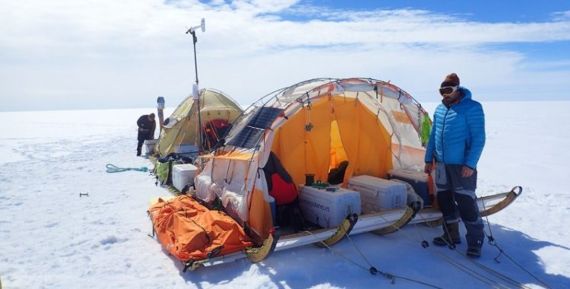Arctic Research and Inuit Critique: Bridging the Credibility Gap

In the realm of Arctic research, the pursuit of knowledge has often been characterized by a persistent divide between Western academic knowledge and Inuit traditional knowledge. This credibility gap has not only shaped research methodologies but has also had profound implications for policy-making in the Arctic region. In this comprehensive article, we delve into the complexities of Arctic research governance and the evolving landscape of knowledge generation. From understanding the roots of the credibility gap to exploring capacity-building and policy implications, this article sheds light on the need for a transformative shift in research practices that prioritize the voices and perspectives of the Inuit community.
The Credibility Gap: Western Knowledge vs. Inuit Knowledge
The credibility gap, as it pertains to Arctic research, is rooted in the clash of epistemologies – Western academic knowledge versus Inuit traditional knowledge. Western knowledge, often considered rigorous and evidence-based, has historically overshadowed Inuit knowledge, dismissing it as oral tradition, myth, and story. This disparity in perceived credibility has significant implications for how research is conducted and who benefits from it.
Traditional Ecological Knowledge (TEK)
Inuit traditional knowledge, referred to as Inuit Qaujimajatuqangit (IQ) in Inuktun, goes beyond the Western notion of traditional knowledge. It encompasses a holistic worldview, values, language, social organization, and life skills. IQ is a dynamic concept that emphasizes action, perception, and communal learning, bridging the past, present, and future. Unlike the passive view of traditional knowledge, IQ is a proactive approach to understanding and interacting with the environment.
The Credibility Dilemma
While some researchers acknowledge the scientific value of Inuit knowledge, this perspective remains the exception rather than the norm. The credibility gap persists, hindering the integration of IQ into Arctic research. This divide extends to policy-making, where decisions are often made in southern Canada, further disenfranchising Inuit communities.
Research Governance and Policy Implications
Research methodology plays a pivotal role in bridging the credibility gap. Shifting from ethnographic descriptions to community-based research has been a positive step in acknowledging the importance of Inuit perspectives. However, the ultimate goal should be research by Inuit for Inuit, which necessitates a reevaluation of research assumptions.
Capacity-Building: Who Benefits?
Capacity-building is a crucial aspect of Arctic research, yet it has largely favored southern Canada. The question of who decides on research and what counts as evidence remains centralized. Closing the credibility gap requires a more inclusive approach that recognizes the existing knowledge within Inuit communities and shifts the focus from capacity-building in the South to a two-way exchange of knowledge.
Towards Inuit-Centric Research
To address the challenges posed by the credibility gap, a paradigm shift in Arctic research governance is imperative. Inuit voices must be central in decision-making processes, and their knowledge should be valued as equal to Western academic knowledge. This shift will not only enhance the quality of research but also lead to more effective policies that cater to the needs of Inuit communities.
A Call for Inclusivity
Arctic research has long operated within a colonial framework, perpetuating the credibility gap between Western and Inuit knowledge. To truly reconcile with Indigenous Peoples, Canada must extend its efforts to reform Northern research practices and governance. The path forward involves embracing research by Inuit for Inuit, recognizing the scientific value of Inuit knowledge, and fostering genuine capacity-building. By bridging the credibility gap, we can pave the way for a more equitable and inclusive future in Arctic research. The journey from the credibility gap to capacity building is a transformative one. It requires a commitment to understanding, respecting, and integrating Inuit knowledge into the fabric of Arctic research. Only through this holistic approach can we hope to create research and policies that empower Inuit communities and address their unique needs effectively.

